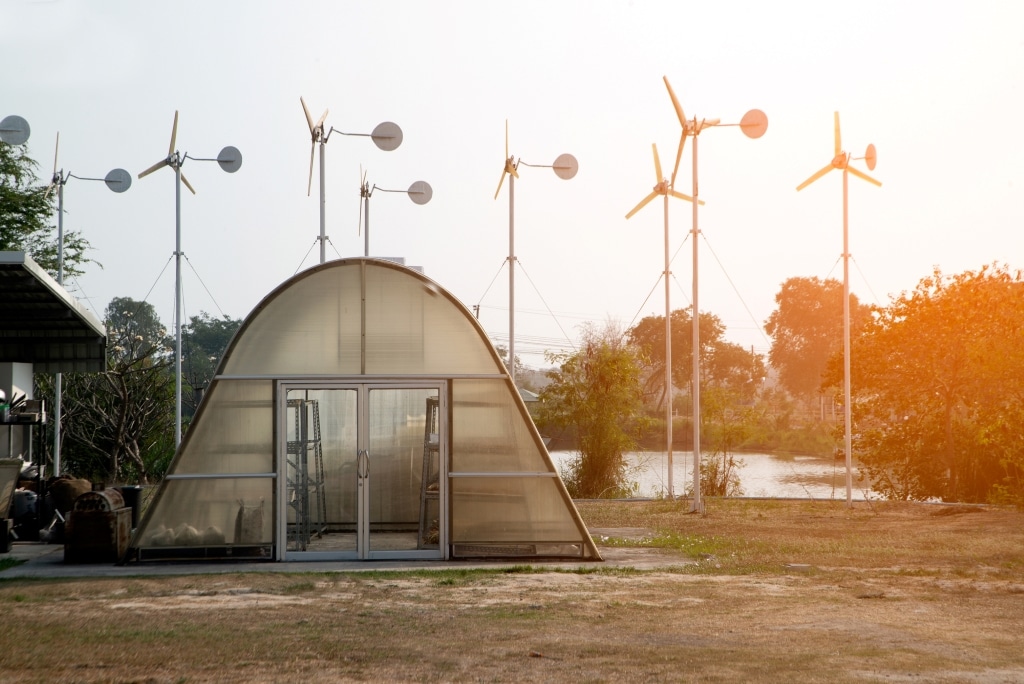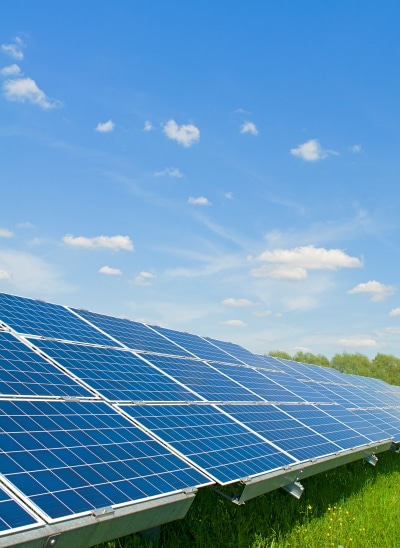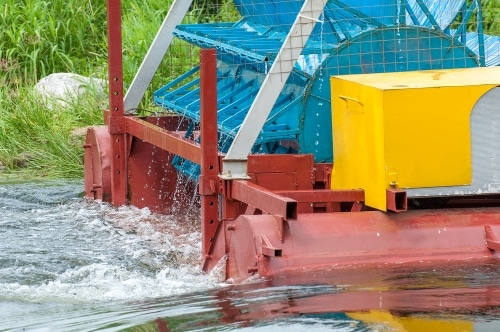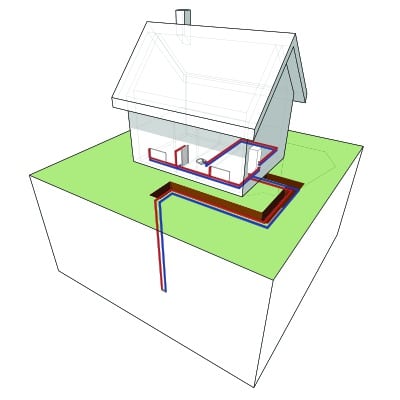
The world is going green, but there are many people who don’t want to go green because they are uncertain about how to power their house with green power options. With the renewable energy options, it is hard to see why some people don’t want to go green.
If you’re like me, you’ve been dreaming about a self-sufficient, off-grid lifestyle for years. Unfortunately, the reality is that living in the wilderness is not as easy as it sounds. There are many things that you have to consider before you decide on the type of energy source to power your house off the grid.
But don’t worry, there are many ways to go green and there are other non-renewable options:
You can use renewable energy options like solar power, wind power, hydroelectric power, and geothermal power. Or, non-renewable options with traditional generators
So if you want to know what is going to happen with the power that you are getting from your whether or not you are going to be able to make it through the winter when the power goes out. Let’s dig in.
Table of Contents
5 Types of Power Options for Off-grid
Solar (PV)
Solar power is one of the most popular options for going green. There are many reasons why solar power is great for the environment. First, it is not only renewable, but it is also very clean. It is a very clean energy source because it does not pollute the environment as traditional energy sources do. I can’t say the same for the backup battery pack but compared to traditional fuel-burning methods, solar power is one of the most eco-friendly.
Solar power works by converting the energy of the sun into electricity using photovoltaic (PV) cells. PV cells use the energy of sunlight to produce direct current (DC) electricity.
To create solar electricity, a solar panel array receives sunlight from a particular area. The solar panel converts the sunlight into direct current electricity. The DC electricity is then fed into a battery bank or converted to AC for immediate usage. You may find it helpful to read my article on: On-Grid vs Off-Grid systems here.
Although the initial investment sum is quite hefty, the payback period is very fast. You can expect to recoup the investment in about 7-10 years. And, if you are planning to live in a remote area where connecting to the grid is not an option, solar panels will be the best option for you. What’s more? Your return on investment will be faster with the incentives like solar tax credit and sales tax exemptions. There are more than enough compelling reasons to put this system on the top of your list.
However, the main downside to solar power is that it does not work when the sun is not shining. You might have to endure seasonality changes with other energy generation methods.

Wind Turbines
A wind turbine is a machine that turns the wind into usable energy. Wind turbines use the wind’s energy to turn a turbine rotor, which in turn rotates a gearbox, which turns a generator, which produces electricity. It has been proven to be a great source of energy for hundreds of years. Although it might not be as popular as the other sources, it does produce a lot of power if you got a huge setup.

However, its production requires a lot of space. It also needs a very sturdy foundation and constant wind speed reliability. That’s why most homes with wind turbines are usually in remote areas where they can take advantage of the free and unlimited energy. This is not always the case, some places have low wind speeds that do not produce enough power to be functioning.
In contrast, solar power might have higher reliability in power generation and lesser mechanical parts to maintain than wind turbines.
Hydro Power (micro hydro)
Hydro power is one of the oldest sources of energy. This form of renewable energy uses the force of moving water, such as rivers, canals, and streams, to generate electricity. It works pretty much like your wind turbine, except that the water wheel or turbine is driven by the moving water instead of the wind.
Hydroelectricity requires running water from upstream. This means that it is not possible to generate energy without the presence of water flow. In some cities, large dams can be used to power the entire town. So, if you have access to a river, then it might be a good idea to set up a micro hydro power system.
With that being said, it is important to note that hydroelectricity is one of the most inefficient forms of renewable energy but it definitely gets you the best price per watt. The simplicity of the system makes it a very affordable option for most homeowners.

Geothermal (Heat pump)
Geothermal energy, or geothermal heat, is the use of the Earth’s internal heat to produce electricity. In some cases, geothermal energy is created by tapping into the natural heat at very deep depths. But harnessing power from geothermal energy is a large-scale industrial process that is not used for residential homes.
So what you can do with geothermal energy for your off-grid home? You can use a geothermal heat pump to heat your home during winter and cool it during summer. This works by running a set of underground pipes below the frost line with a closed system fluid to transfer heat in or out of your apartment. As the ground is naturally warmer than the temperature above the surface, the heat pump will transfer heat from the ground to the room during winter. Likewise, during summer the ground act as a heat sink which will cool the room.

Even though it doesn’t generate any excess power for you, it cuts your energy usage for heating and cooling all year round. This is important because the average cost of heating and cooling accounts for about 30% of your overall energy bill. It is no surprise that this cost is one of the biggest initial investments but you’ll see substantial savings in the long run.
Just make sure you are aware you will need to perform a site survey to ensure that your location is suitable to set up a geothermal heat pump.
Other Options (Generators)
When nature is not in your favor, you can always rely on generators to power your home. Generators provide an alternative way to get electricity into your home and the most common ones run on fossil fuels like gasoline, diesel, and natural gases. The variety of generators on the market out there is staggering so you need to be sure that you choose the correct size for your application. Especially, if you are using it as your primary source of power, you will want to look at a prime running power rated generator instead of the emergency standby genset.
Just like any other machinery, powering it beyond its design specifications or run time can result in premature wear and tear. And when it comes to generators, the problem of overuse and misuse is especially prevalent. So before you invest in one, be sure to consider the load, fuel type, runtime, and required maintenance.
Generators are used in many ways and they can be so much cheaper than other renewable energy sources. However, one thing to keep in mind is that generators are generally very noisy with relatively high harmful smoke emissions from fuel burning.

Some types of generators include:
Gasoline generator
Diesel generator
Natural gas generator
Portable generator
Solar generator
Inverter generator
Hydrogen generator
Generators are very useful tools. In fact, they are essential for people who live in remote areas. They are portable, reliable, and it is one of the most affordable ways to get electricity to your home.
Final Note:
Most of the power harnessing options might seem to require high financing. But with increasing electrical rates and improved efficiency of generating electricity from renewable energy, you can count on your power bills to go down in the long run.
Some power options here might require an energy storage unit to store energy from the sun or wind. Otherwise, it can also be configured with 2 or more sources, like a solar energy system and backup generator to complement each other to ensure your power never goes down.
There are so many different options to get electricity to your home and to your appliances. It’s up to you to determine which one works best for you and your family. However, if you are looking for a solution that can provide reliable power for your home, then it’s time to consider renewable energy.
More Helpful Solar Energy Information
- How Many Solar Panels Do I Need To Go Off The Grid? – In here, we’ve got a step-by-step guide on how to calculate your energy requirements and solar array size for your off-grid home.
- On Grid Vs Off-Grid Solar System – What’s the difference and which system is better for you? In any case, you need to understand the difference before you stay on the grid or off the grid. This post explains it for you.
- More Lower Or Less Higher Wattage Solar Panels? – Are you confused about choosing the right panel wattage and size? This post compares the cost, efficiency and panels footprint so that you can get the best out of your solar array!
- How To Choose A Solar Charge Controller? – It might be tough to understand if you don’t know how to choose a charge controller, but this post will help you get a clear idea of what to look for and how to choose a charge controller.
- How Many Batteries Do I Need To Go Off-Grid? – Batteries are very expensive and oversizing is not a smart move! This post will break down the itsy-bitsy details and will help you understand how to calculate the required number of batteries for your off-grid home.

